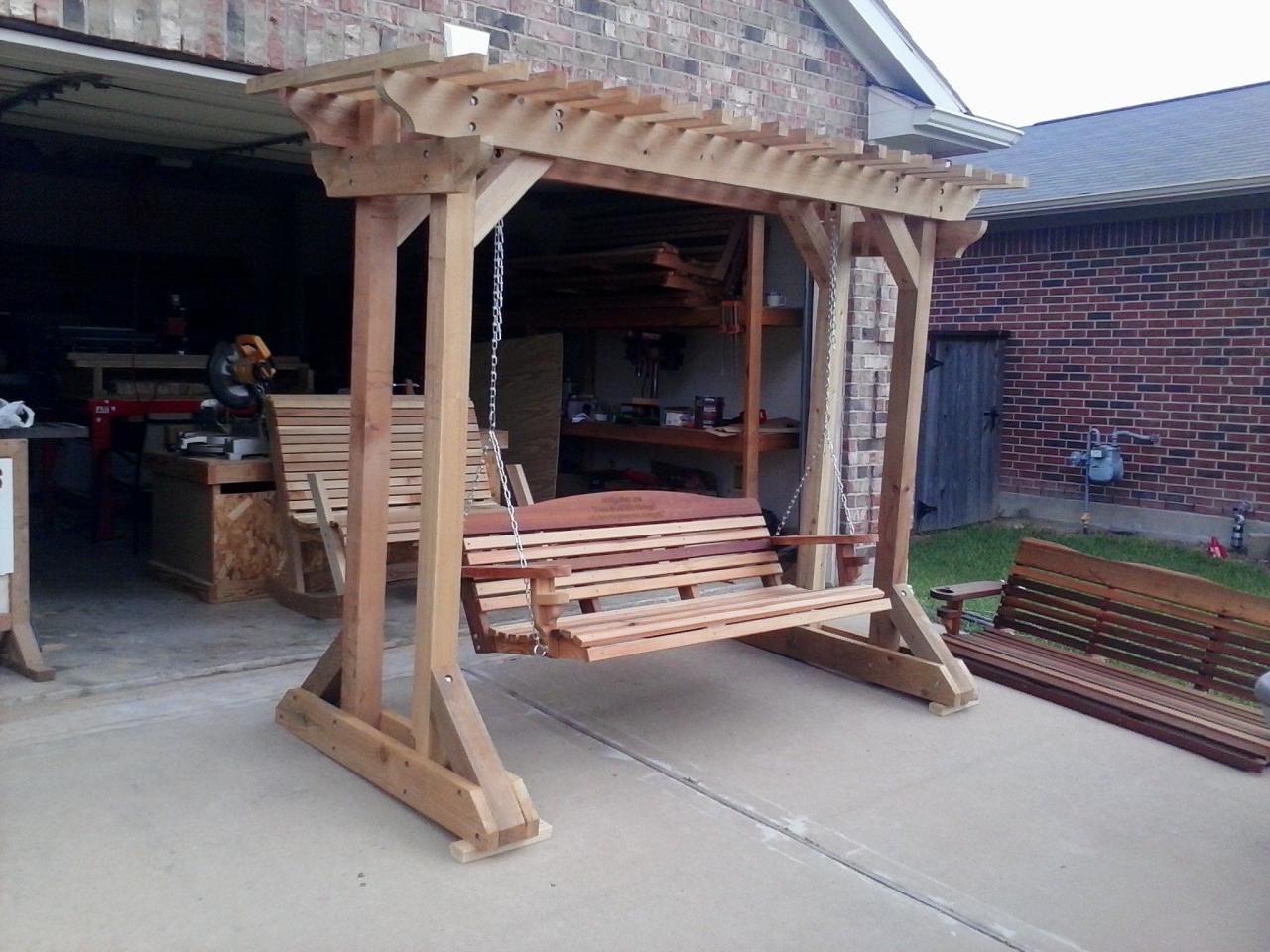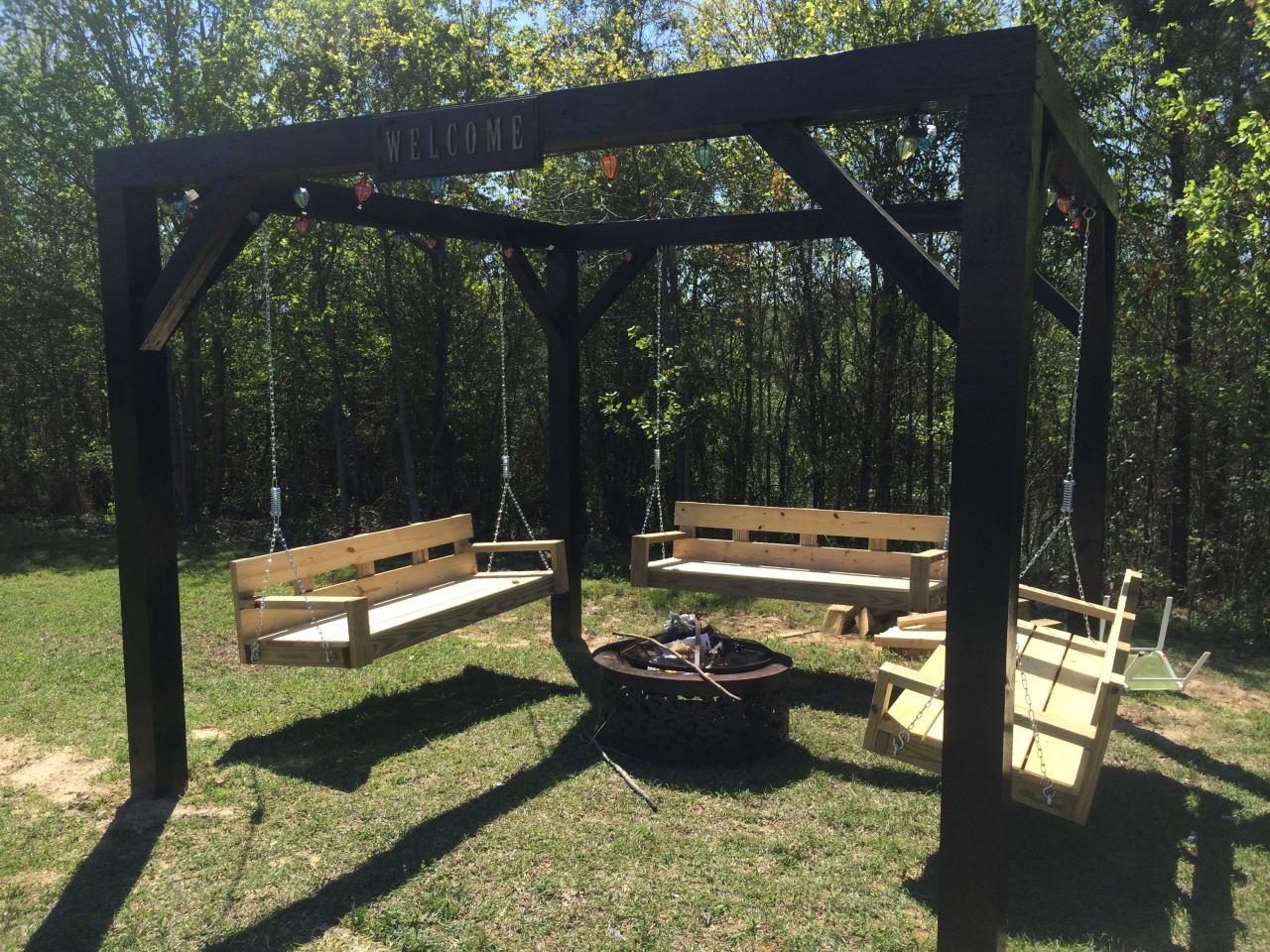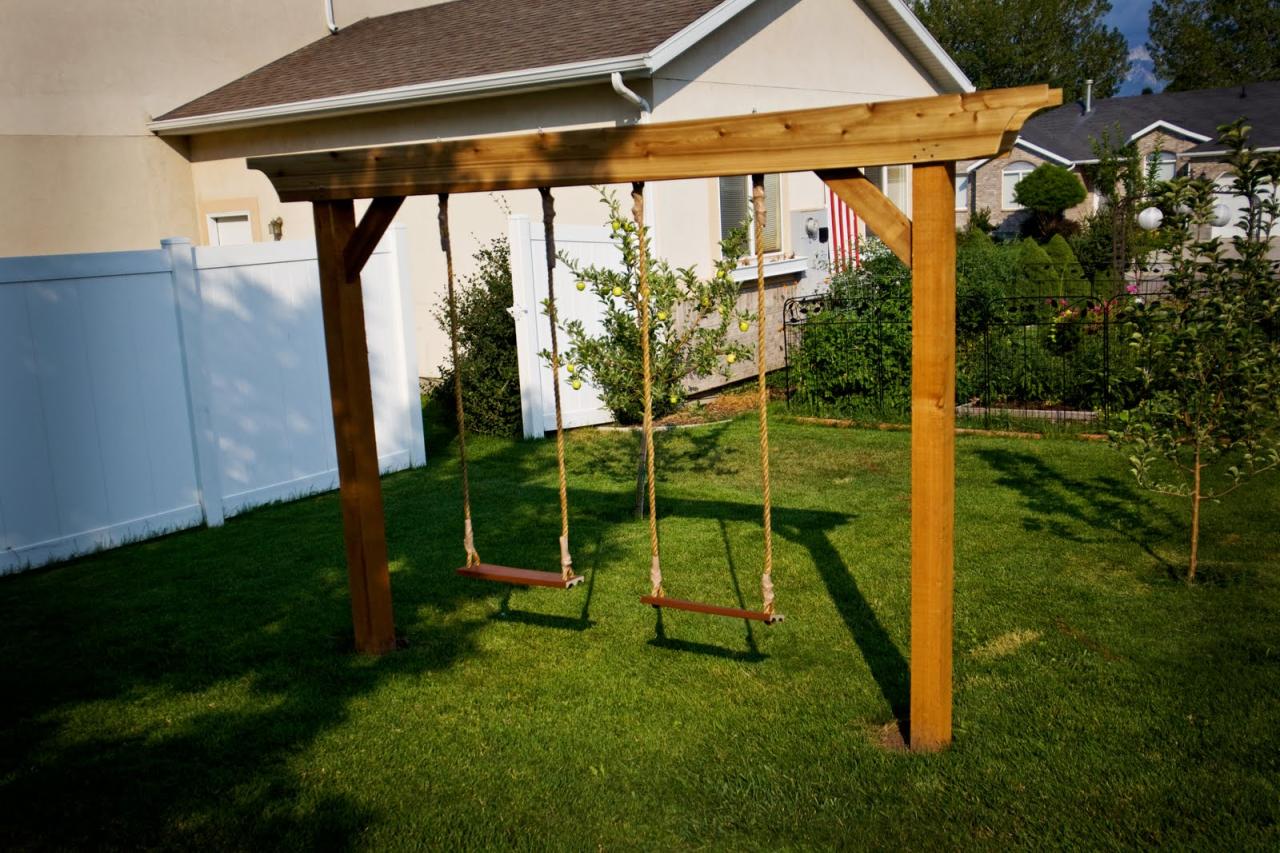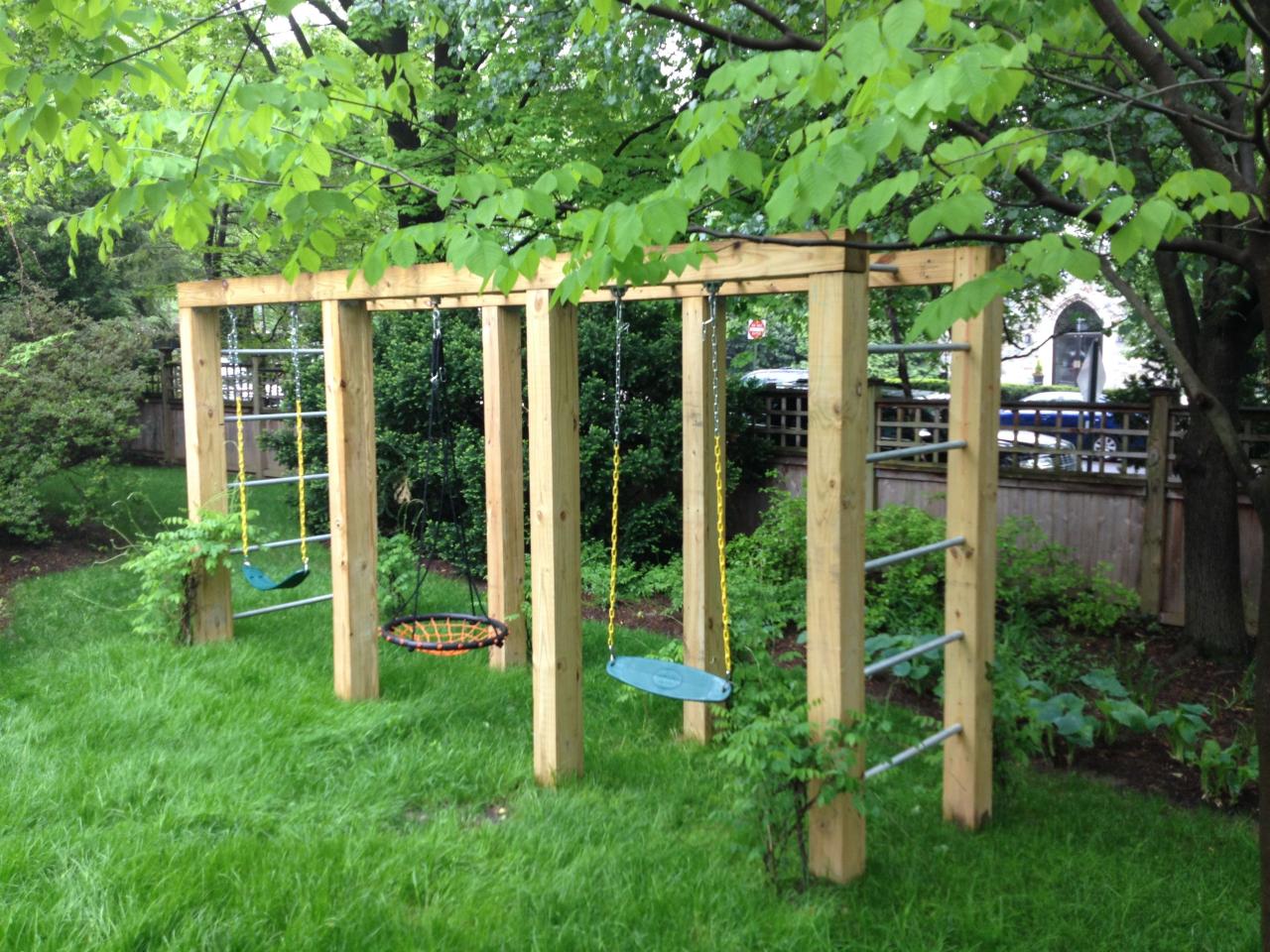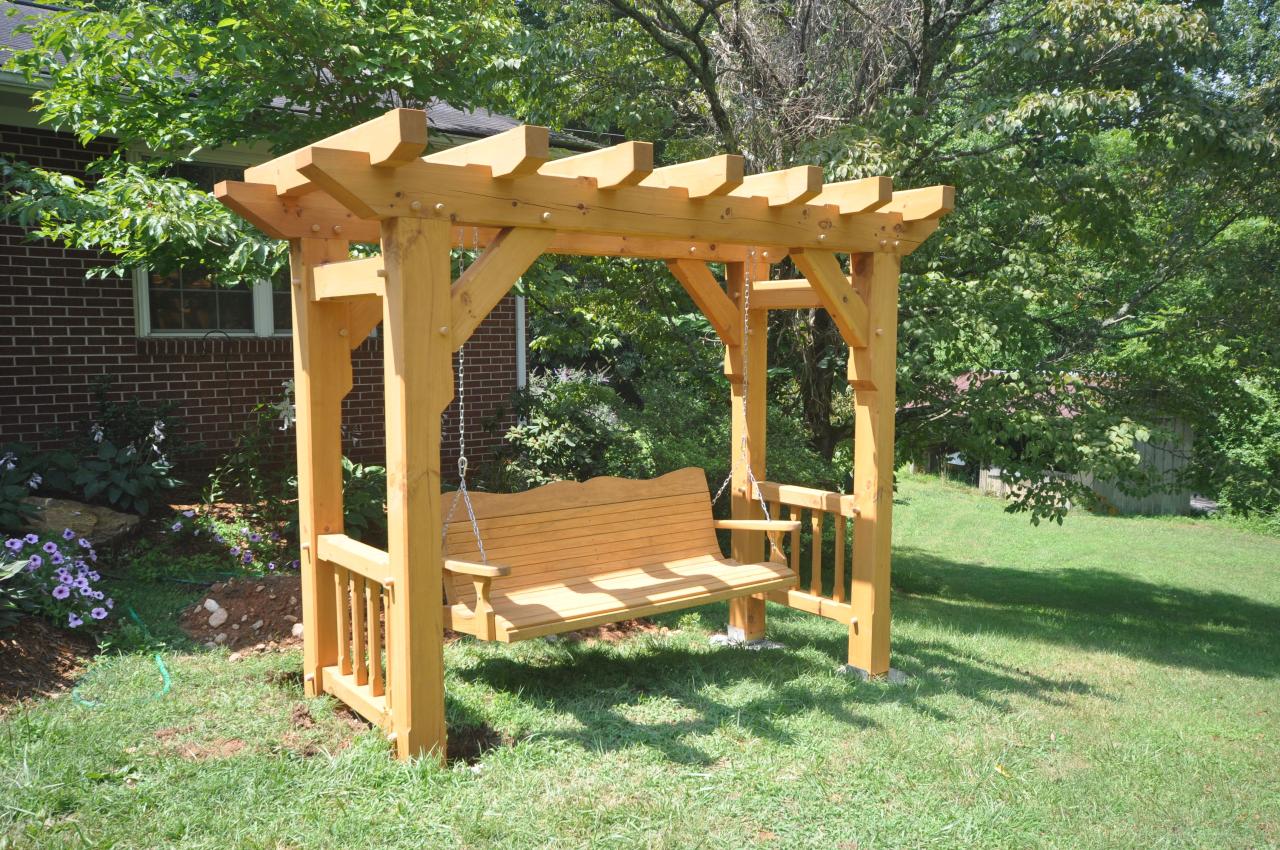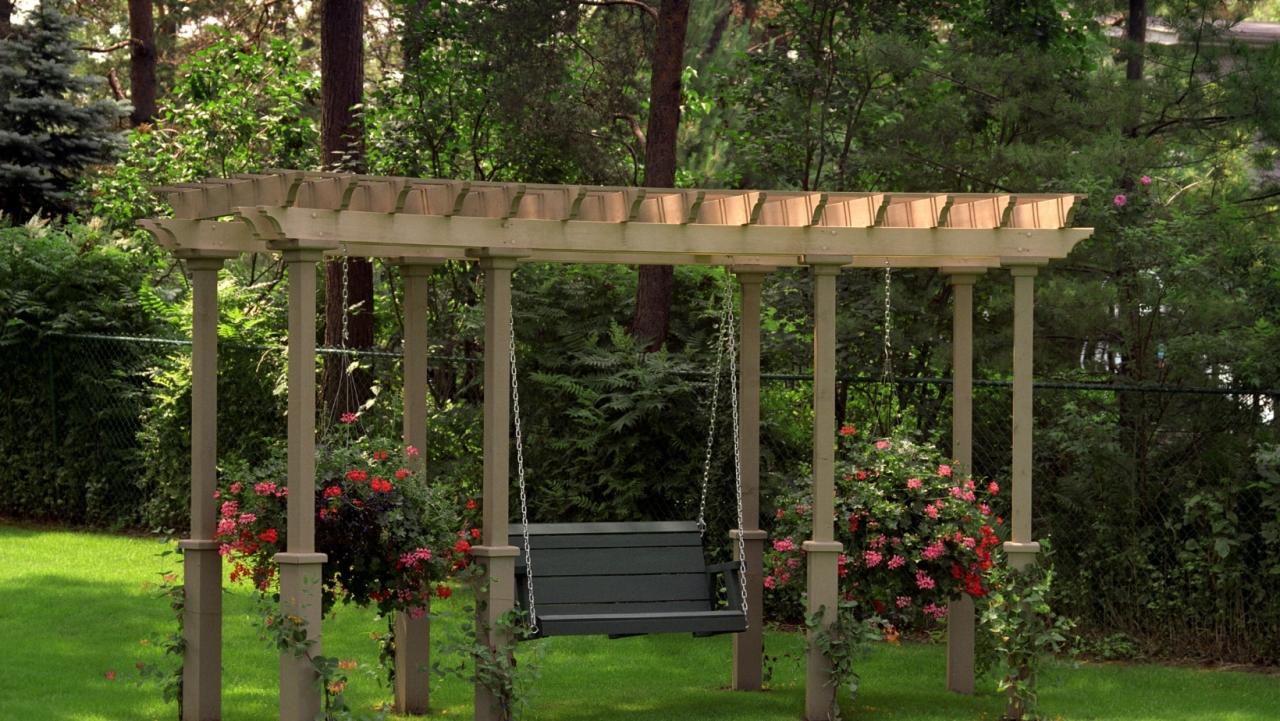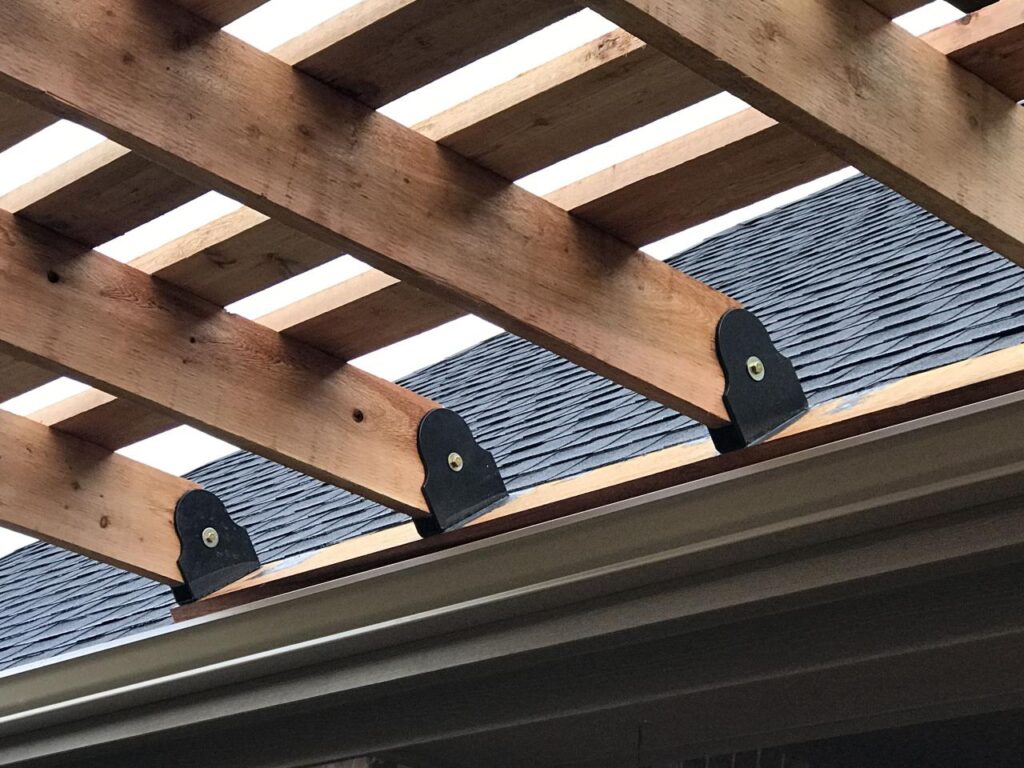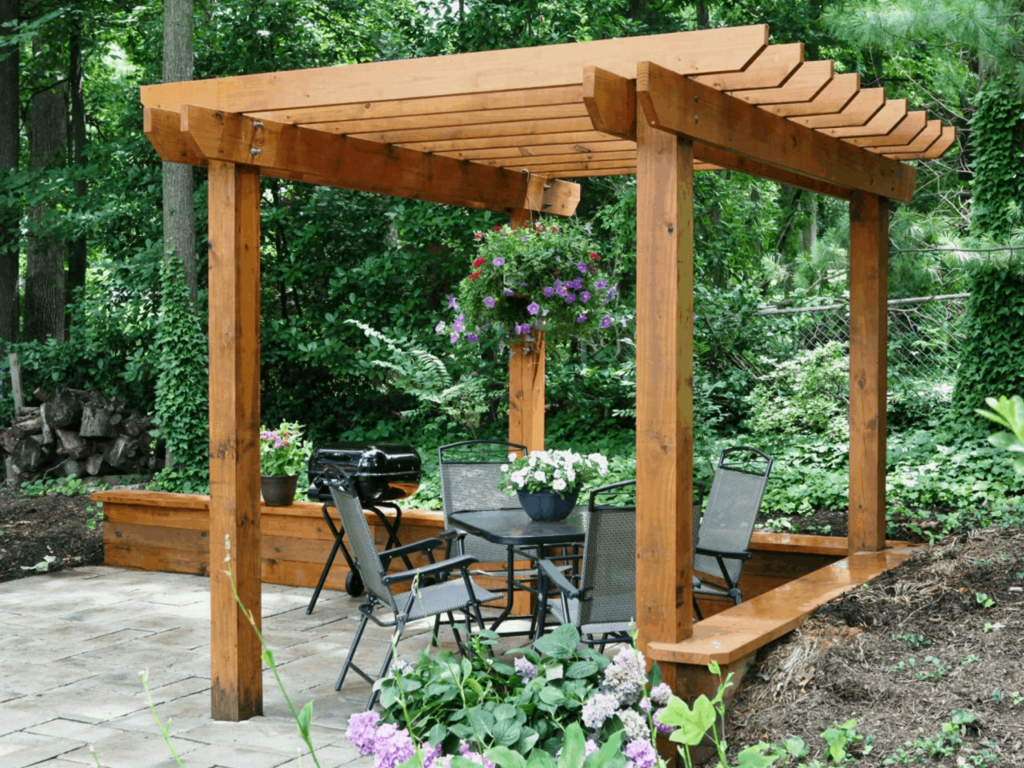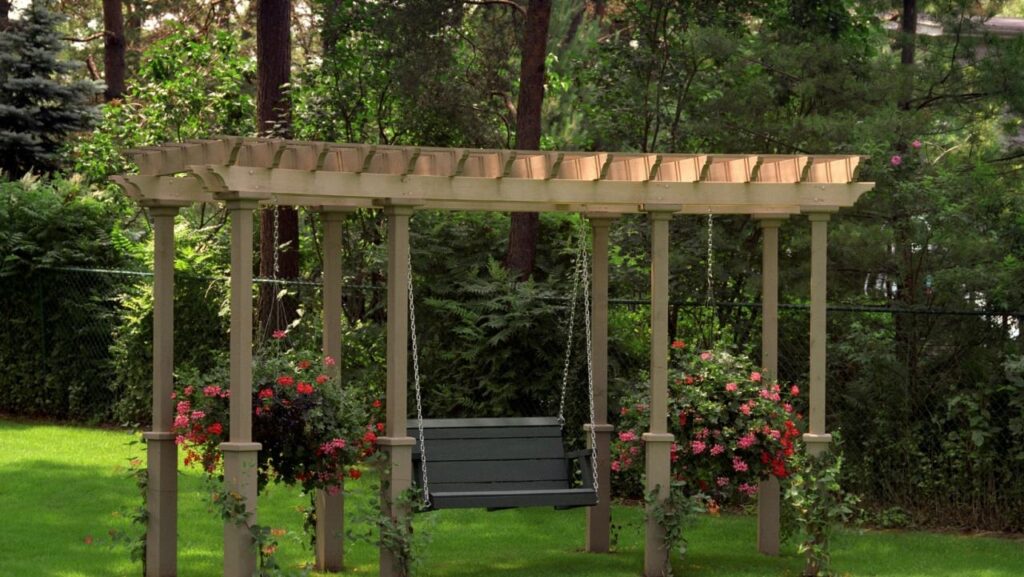Embark on a delightful journey as we delve into the art of crafting your own DIY pergola swing set, a sanctuary of joy and relaxation that will transform your backyard into an enchanting oasis.
From meticulously selecting materials to designing a sturdy structure and adding whimsical touches, this comprehensive guide will empower you to create a swing set that is not only functional but also a testament to your creativity.
DIY Pergola Swing Set Materials and Tools
To construct a durable and safe DIY pergola swing set, it is crucial to gather the necessary materials and tools. The choice of wood, hardware, and tools plays a significant role in the overall quality and longevity of the structure.
Essential Materials
- Pressure-treated lumber: Recommended for outdoor use due to its resistance to rot and decay.
- Carriage bolts: Heavy-duty bolts used to connect the pergola beams and swing supports.
- Lag bolts: Long, threaded bolts used to secure the pergola posts to the ground.
- Swing hangers: Metal brackets that attach the swings to the pergola beams.
- Swing chains or ropes: Durable materials used to suspend the swings.
- Concrete: Used to anchor the pergola posts into the ground for stability.
Essential Tools
- Circular saw: For cutting the lumber to size.
- Drill: For creating holes for bolts and screws.
- Level: For ensuring the pergola is level and plumb.
- Measuring tape: For accurate measurements during construction.
- Safety glasses: To protect your eyes from flying debris.
- Gloves: To protect your hands while handling lumber and tools.
Pergola Design and Construction: Diy Pergola Swing Set
Pergolas are versatile structures that can provide shade, support climbing plants, and add architectural interest to outdoor spaces. Understanding the structural elements and following proper construction techniques are crucial for building a sturdy and aesthetically pleasing pergola.
Structural Elements of a Pergola
A pergola typically consists of the following structural elements:
– Beams: The primary horizontal supports that run along the length of the pergola.
– Rafters: The smaller beams that are attached to the beams and form the roof of the pergola.
– Supports: The vertical posts that support the beams and rafters.
Building the Pergola Frame
1. Determine the size and shape of the pergola and mark the location of the supports.
2. Dig holes for the supports, ensuring they are deep enough to provide stability.
3. Place the supports in the holes and fill them with concrete.
4. Attach the beams to the supports using bolts or screws.
5. Attach the rafters to the beams, ensuring they are evenly spaced.
Attaching the Pergola to the Ground
– Use concrete footings: Pour concrete into forms around the base of each support to provide a stable base.
– Use metal anchors: Drive metal anchors into the ground and attach the supports to them using bolts.
– Use ground screws: Screw ground screws into the ground and attach the supports to them using brackets.
Design Options
– Size: Pergolas can range in size from small, intimate structures to large, sprawling ones.
– Shape: Pergolas can be rectangular, square, round, or custom-shaped.
– Roof covering: Pergolas can have a solid roof made of materials such as wood, metal, or fabric, or a slatted roof that allows sunlight to filter through.
Swing Set Design and Assembly
Designing and assembling a swing set for your pergola involves selecting the right types of swings, attaching them securely, and adjusting them for safety and comfort. Here’s a comprehensive guide to help you through the process.
Enhance the charm of your outdoor space by incorporating a stylish custom aluminum pergola over your DIY pergola swing set. Its sleek and durable structure will provide ample shade and protection from the elements, creating a tranquil oasis for relaxation and entertainment.
As you swing gently beneath the pergola, enjoy the serenity of your backyard retreat, knowing that your custom aluminum pergola will endure the test of time.
Types of Swings, Diy pergola swing set
- Tire Swings: Made from recycled tires, these swings provide a sturdy and durable option for kids.
- Bucket Swings: These swings feature a molded plastic seat that offers a comfortable and secure ride for younger children.
- Porch Swings: Designed for adults, these swings typically have a wider seat and are often made from wood or metal.
Safety Considerations
Building and installing a pergola swing set requires careful attention to safety. Using treated wood and weather-resistant materials ensures the structure’s longevity and durability. Proper construction techniques, including secure anchoring and proper hardware, prevent accidents and injuries.
Creating a DIY pergola swing set is a fun and rewarding project that can enhance any backyard. A pergola provides a sturdy structure for the swing, creating a shaded and inviting space. If you’re looking for more information on pergolas, visit Pergola to learn about their different styles, materials, and installation tips.
With a little planning and effort, you can create a beautiful and functional pergola swing set that will provide years of enjoyment for your family and friends.
Using Treated Wood and Weather-Resistant Materials
- Treated wood resists rot, decay, and insect damage, extending the swing set’s lifespan.
- Weather-resistant materials, such as galvanized steel or powder-coated paint, protect the structure from sun, rain, and wind.
Safety Precautions During Construction and Installation
- Wear appropriate safety gear, including gloves, eye protection, and a hard hat.
- Use proper lifting techniques and get assistance when handling heavy materials.
- Secure the structure firmly to the ground using concrete anchors or footings.
- Inspect the swing set regularly for loose bolts, splinters, or other hazards.
Maintenance Tips for Longevity
- Clean the swing set regularly to remove dirt and debris.
- Apply a weather-resistant sealant or stain to protect the wood from the elements.
- Inspect the swing chains or ropes frequently and replace them if worn or damaged.
- Store the swing set in a dry place during the off-season to prevent moisture damage.
Design Variations and Enhancements
Customizing the pergola swing set can enhance its aesthetics and functionality. Consider painting or staining the structure in vibrant hues to match your outdoor décor. Incorporate decorative elements like latticework, carved designs, or hanging planters to add visual interest.
Additional Features
Expand the play area by adding a slide, climbing wall, or sandbox adjacent to the swing set. These features encourage physical activity and provide additional entertainment options for children.
Creative Designs
Embrace creativity in the swing set’s design. Consider incorporating a whimsical playhouse or a miniature climbing tower into the structure. Explore unique swing designs, such as a tire swing, a hammock swing, or a basket swing.
Conclusion
As you complete your DIY pergola swing set, take pride in the masterpiece you have created. This enchanting haven will provide countless hours of laughter, adventure, and cherished memories for you and your loved ones.
Remember, the journey of building a swing set is as rewarding as the final product itself. Embrace the process, let your imagination soar, and create a backyard paradise that will bring joy for years to come.
